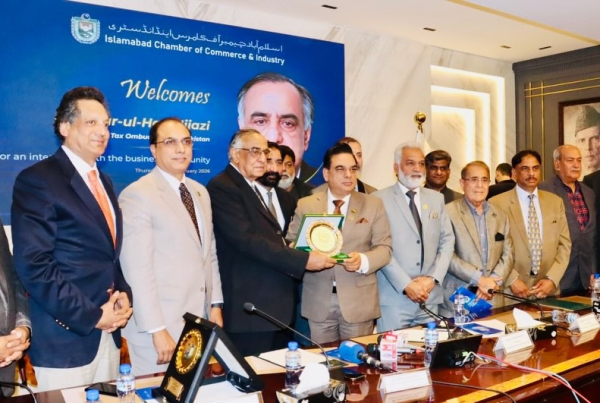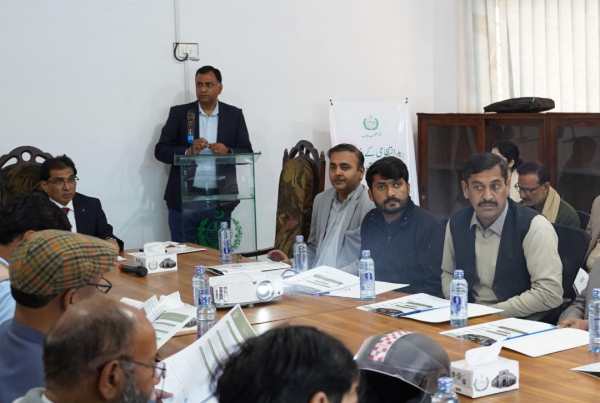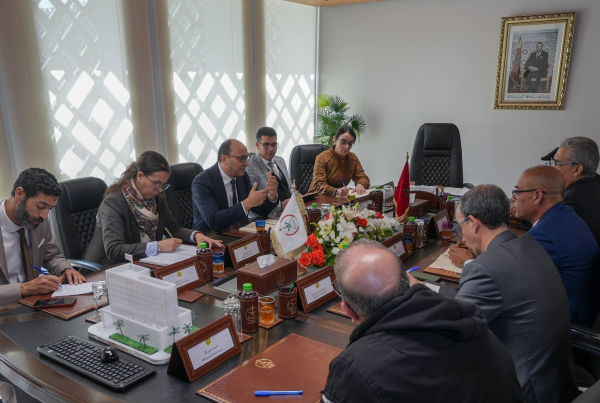OIC Ombudsman Association Member from Pakistan and Sindh Ombudsman for Protection Against Harassment of Women at Workplace, Justice (R) Shahnawaz Tariq was invited as a keynote speaker at a conference titled ‘A World in Turmoil’, organized by Pakistan Institute of International Affairs.

While delivering his keynote speech in the inaugural session about contemporary conflicts, Justice Tariq said that with the disintegration of the Soviet Union, the world witnessed the end of the bipolar international political order, and the emerging of a new world order, with the US as the only superpower.
“However, the era of American hegemony is now being questioned by other powerful countries such as China, Russia, Turkiye, and Brazil, calling for modifying or completely overthrowing the existing international structure, dominated by the US and its European allies,” he said.
He added that today, the world is witnessing a geopolitical competition characterized by a complex nature of power struggle between the US and China. “Students of International Relations term this power struggle a ‘new cold war’, though different from the previous one between the US and the Soviet Union, in terms of its nature and theatre. It is not ideological in nature, ie, Capitalism vs Communism, and the theatre is not Europe anymore, but the East, where the US and China are locked in a geo-strategic as well as economic contest,” Justice Tariq added.
He said that human rights and global justice are integral to international politics as apparent from the role of the International Court of Justice as well as the International Criminal Court in the ongoing Palestine crisis and war in Ukraine. “Pakistan has played a pivotal role in this regard and since 1960, over 200,000 of Pakistan’s servicemen and women have served with honour in many UN missions. Pakistan’s role has been instrumental in advocating for the right of self-determination of the people of Kashmir and Palestine at the UN General Assembly and Security Council,” he said.

Pakistan is party to many international human rights conventions, including the Convention on the Elimination of All Forms of Discrimination Against Women, and has legislated several laws to protect women from gender-based violence and safeguard their property rights. “For this very purpose, the Protection against Harassment of Women at the Workplace Act, 2010, has empowered me and my fellow ombudspersons at the federal and provincial levels to ensure that Pakistani women can exercise their right of employment without any fear of discrimination at the workplace, and contribute to the economic development of our country,” he said.
“But Pakistan has a long way to go and faces huge challenges which can be overcome by looking at the opportunities,” he said.
“Being a part of China’s Belt and Road Initiative [BRI] and the China-Pakistan Economic Corridor [CPEC], Pakistan can reap significant benefits in the coming years through connectivity projects. It is said that CPEC will not only guarantee Pakistan’s economic development, but also prove to be a counterbalance to the growing India-US military alliance in the region, where US leanings towards India has become a major concern for both Pakistan and China,” he pointed out.
He also reminded that Pakistan would have to be very careful in promoting its foreign policy objectives as the US would soon go to elections, and it was very important for Pakistan to promote a better understanding of the US-Pakistan relations with the next US administration, by effectively highlighting its role in the ongoing situation in Afghanistan as well as a front-line state in the war on terror, he concluded.






